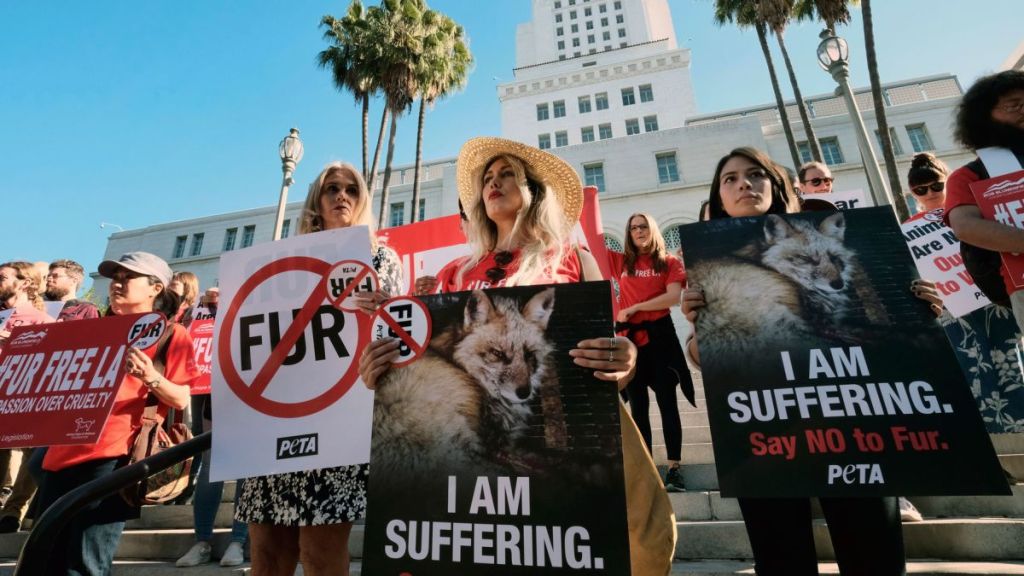Nicolette Merino
In March 2021, The U.S. District Court for the Northern District of California dismissed The International Fur Trade Federation’s constitutional challenge to San Francisco’s ban on the sale of fur products without leave to file an amended complaint.
The City’s fur ban legislation is an example of the growing opposition towards animal fur products. San Francisco is among one of multiple cities in California that enacted fur sale bans, which ultimately led to the state of California becoming the first state in the nation to ban fur sales and manufacturing. The City’s fur ban was unanimously approved by the San Francisco Board of Supervisors in March 2018 and went into effect on January 1, 2019. The ordinance defines “fur” as “animal skin or part thereof with hair, fleece or fur fibers attached thereto” and prohibits the sale, offer for sale, display for sale, trade, and distribution for monetary or nonmonetary consideration a “fur” product. Violators of the ordinance face civil penalties, which are deposited in the Fish and Game Preservation fund. Despite the ordinance’s attempt to deter the production and sale of animal fur, it expressly excludes cowhide, animal skin “that is to be converted into leather,” as well as for deerskin, sheepskin, and goatskin from its definition of “fur.”

Nevertheless, fur ban legislation is significant in advancing animal welfare as it serves to protect the one hundred million animals that are needless killed each year for their fur. While fur bans are only implemented in a few states, preventing the production of even a small amount of fur products could save the lives of many animals. For example, a statistic from the Human Society reveals that over one hundred animals could be killed for one singular fur coat. Banning the production and sale of animal fur is particularly significant given that these animals are subjected to extremely inhumane practices and treatment. Of the one hundred million animals killed, eighty-five percent come from fur factory farms where they are typically housed in cramped, unsanitary cages for their entire lives before they are skinned alive without painkillers and while fully conscious. The remainder of animals are caught in the wild often through the use of leghold traps where they are left to suffer for long periods of time without food and water. The use of this outdated practice not only negatively impacts animals captured for their fur, but also non-targeted animals, that often fall victim to the traps.
While San Francisco’s fur ban represents a positive step in the advancement and recognition of animal welfare, the ordinance, like most animal welfare legislation, has faced constitutional scrutiny. In 2020, The International Fur Trade Federation filed suit against the city and county of San Francisco arguing that the ordinance violated the Commerce Clause of the U.S. Constitution by burdening interstate and foreign commerce in fur products. The International Fur Trade Federation represented fur dealers, trappers, designers and retailers in 40 countries. Further, the Animal Legal Defense Fund and the Humane Society of the United States intervened in the lawsuit in defense of the legislation’s constitutionality.
The March 2021 dismissal followed three previous attempts by the International Fur Trade Federation to amend its complaint. Despite the International Fur Trade Federation’s claim that the ban would result in a loss of forty-five million sales each year, U.S. District Judge Richard Seeborg’s most recent holding reinforced his earlier finding that the ban does not unconstitutionally burdens interstate or international commerce. The International Fur Trade Federation’s most recent complaint contained allegations that, pursuant to the text of the ordinance, the city did not have the power to enforce the fur ban against retailers located in San Francisco who also sell products to San Francisco consumers online. The International Fur Trade Federation requested a court ruling that the ordinance could not be applied to online sales for retailers including Bloomingdale’s, Neiman Marcus and Saks Fifth Avenue, which have physical locations in San Francisco but also sell products online. Judge Seeborg applied a broad interpretation to the ordinance’s ban on sales, concluding that the ban also included internet sales “where both the buyer and seller are located in San Francisco.” However, he indicated that enforcement would extend only to companies with physical locations in San Francisco.
Filed under: Uncategorized |



Leave a comment